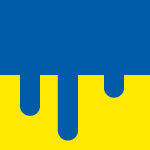12.03.2025 , in ((Vulnerabilization of Migrant Workers During Crises))
, ((No Comments))
Florence Testorelli and Peppino Müller
 Urban essential workers are employed in key sectors, providing essential services such as public transport, cleaning, childcare and access to food. Five years ago, the COVID-19 pandemic shed light on these mostly invisible workers. However, low wages, poor working conditions and low social recognition still characterize their daily work. Despite
...
Urban essential workers are employed in key sectors, providing essential services such as public transport, cleaning, childcare and access to food. Five years ago, the COVID-19 pandemic shed light on these mostly invisible workers. However, low wages, poor working conditions and low social recognition still characterize their daily work. Despite
...
+ Read more
08.05.2024 , in ((Voting Rights for Non-Nationals))
, ((No Comments))
Oliver Strijbis
 Nach Luxemburg ist die Schweiz das europäische Land mit dem höchsten Ausländeranteil. Da die Schweiz nicht Teil der Europäischen Union ist, kennt sie bis auf wenige kantonale und kommunale Ausnahmen kein Wahlrecht für ausländische Personen. Die Folge davon ist, dass etwa ein Viertel der Bevölkerung in der Schweiz von den
...
Nach Luxemburg ist die Schweiz das europäische Land mit dem höchsten Ausländeranteil. Da die Schweiz nicht Teil der Europäischen Union ist, kennt sie bis auf wenige kantonale und kommunale Ausnahmen kein Wahlrecht für ausländische Personen. Die Folge davon ist, dass etwa ein Viertel der Bevölkerung in der Schweiz von den
...
+ Read more
24.04.2024 , in ((Voting Rights for Non-Nationals))
, ((No Comments))
Zaira Esposito and Rosita Fibbi
 Die Frage der politischen Partizipation von ausländischen Einwohner*innen in Genf und Basel-Stadt ist wieder aktuell. Die beiden städtischen Kantone weisen zahlreiche Parallelen auf. Ihr dynamisches wirtschaftliches Umfeld geht einher mit einem hohen Anteil an Bewohner*innen ohne Schweizer Pass, die im Jahr 2023 jeweils 41% bzw. 38% der Wohnbevölkerung ausmachten. In
...
Die Frage der politischen Partizipation von ausländischen Einwohner*innen in Genf und Basel-Stadt ist wieder aktuell. Die beiden städtischen Kantone weisen zahlreiche Parallelen auf. Ihr dynamisches wirtschaftliches Umfeld geht einher mit einem hohen Anteil an Bewohner*innen ohne Schweizer Pass, die im Jahr 2023 jeweils 41% bzw. 38% der Wohnbevölkerung ausmachten. In
...
+ Read more
21.06.2023 , in ((Practices, What do we mean by…))
, ((2 Comments))
Anouk Albien and Didier Ruedin
Globalization and intense global competition for highly-educated workers (expatriates) are drawing attention to their international mobility in OECD countries. However, the collection of international migration data lags behind, resulting in inconsistent and confusing estimates of expatriates worldwide. Tracking the real-time movements of this population has become increasingly challenging, leading to
...
+ Read more
25.05.2022 , in ((Europe on the Brink))
, ((No Comments))
Anna Amelina
 According to UNHCR, more than 6.3 million people have left Ukraine since 24 February 2022. Most of them have arrived in the EU (3.4 million in Poland alone), but also over 850’434 in Russia. The tragedy of the Ukrainian citizens forced to move and those forced to continue living in
...
According to UNHCR, more than 6.3 million people have left Ukraine since 24 February 2022. Most of them have arrived in the EU (3.4 million in Poland alone), but also over 850’434 in Russia. The tragedy of the Ukrainian citizens forced to move and those forced to continue living in
...
+ Read more
 Urban essential workers are employed in key sectors, providing essential services such as public transport, cleaning, childcare and access to food. Five years ago, the COVID-19 pandemic shed light on these mostly invisible workers. However, low wages, poor working conditions and low social recognition still characterize their daily work. Despite
...
Urban essential workers are employed in key sectors, providing essential services such as public transport, cleaning, childcare and access to food. Five years ago, the COVID-19 pandemic shed light on these mostly invisible workers. However, low wages, poor working conditions and low social recognition still characterize their daily work. Despite
...


 Nach Luxemburg ist die Schweiz das europäische Land mit dem höchsten Ausländeranteil. Da die Schweiz nicht Teil der Europäischen Union ist, kennt sie bis auf wenige kantonale und kommunale Ausnahmen kein Wahlrecht für ausländische Personen. Die Folge davon ist, dass etwa ein Viertel der Bevölkerung in der Schweiz von den
...
Nach Luxemburg ist die Schweiz das europäische Land mit dem höchsten Ausländeranteil. Da die Schweiz nicht Teil der Europäischen Union ist, kennt sie bis auf wenige kantonale und kommunale Ausnahmen kein Wahlrecht für ausländische Personen. Die Folge davon ist, dass etwa ein Viertel der Bevölkerung in der Schweiz von den
...